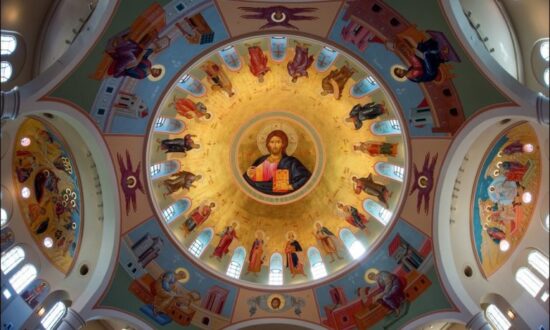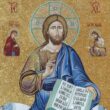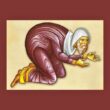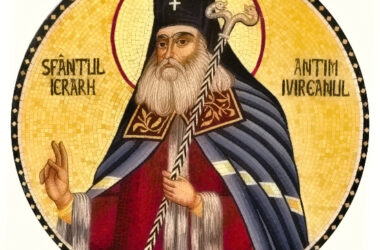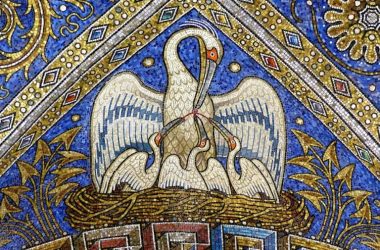12 One of those days Jesus went out to a mountainside to pray, and spent the night praying to God. 13 When morning came, he called his disciples to him and chose twelve of them, whom he also designated apostles: 14 Simon (whom he named Peter), his brother Andrew, James, John, Philip, Bartholomew, 15 Matthew, Thomas, James son of Alphaeus, Simon who was called the Zealot, 16 Judas son of James, and Judas Iscariot, who became a traitor.
Blessings and Woes
17 He went down with them and stood on a level place. A large crowd of his disciples was there and a great number of people from all over Judea, from Jerusalem, and from the coastal region around Tyre and Sidon, 18 who had come to hear him and to be healed of their diseases. Those troubled by impure spirits were cured, 19 and the people all tried to touch him, because power was coming from him and healing them all.
The prayer – aspects and meanings
Clement of Alexandria, Stromata, Stromata a VII-a, Cap. VII, 44.1.-44.5., in Church Fathers and Writers (1982), vol. 5, p. 503
The prayer of the bad people is very harmful not only for other people but also for themselves. If these by their prayers receive what they call good and fortunate, their receipt harms them because they don`t know how to use them properly.
Some pray to gain what they don`t have ; but they ask for what it seems good, not for what it is good indeed. The Gnostic will pray to keep what he has, to have according to his measure what he has, to keep them and keep his peace for those he did not receive.
He prays to have the real goods, namely the spiritual ones, and to keep them for ever with him
That is why he doesn`t desire anything he doesn`t have, he content with what he has. He doesn`t miss any of the goods which are suitable for him, as for him is enough to have the divine Grace and knowledge.
Being content with what he has he doesn`t miss the absence of the others as he knows the will of the Almighty; he has what he needs even in the moment when he prays and being close to the almighty power he unites himself with the Spirit through an endless love.
Saint John Chrysostom, Homilies at Matthew, homily X, VII, in Church Fathers and Writers (1994), vol. 23, p. 129
`(…) Let us be moderate in everything and take heed at prayer. If our prayers are not fulfilled, let us insist to have them fulfilled. If they were fulfilled let us insist exactly because they were fulfilled. God doesn`t want to postpone the giving but by the delay of the giving He determines the insistence in prayer. That is why He postpones the fulfillment of the demands and many times He allows trials to come to run to Him all the time; and by running to insist in prayer.`
Saint John Chrysostom , Homilies at Matthew, homily XXI, V, in Church Fathers and Writers (1994), vol. 23, p. 288
`However God expects to be prayed by us; He even thanks you when you pray to Him. He is the only debtor who thanks you when you ask Him and give you what you didn`t lend him.`
Source: http://ziarullumina.ro

